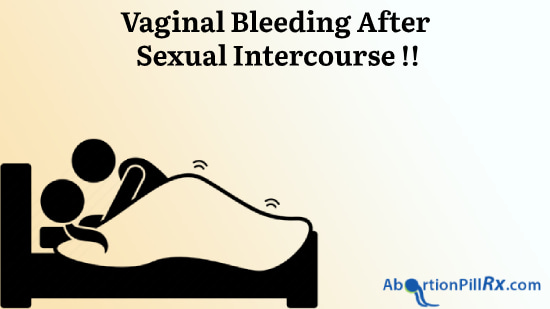Recently updated on February 15th, 2023 at 06:21 am
Bleeding after sexual intercourse can be scary. Postcoital bleeding is what they say in medical terms. To know if the vaginal bleeding is alarming, you should see the reason behind it.
There are many reasons why a woman bleeds after sexual intercourse. This blog lists a few and tells you factors that you should know about vaginal bleeding after sex.
Causes:
If bleeding after sexual intercourse is a regular thing, it often indicates a health condition.
Infection:
Sexual transmitted Infection or Inflammatory Pelvic disease infections can cause bleeding during or after sexual intercourse. Especially chlamydia can affect the vagina which leads to bleeding.
Dryness:
After you hit menopause age, the vaginal discharge gets reduced. If such secretions are reduced, it can cause dryness eventually causing atrophic vaginitis problems. This has a negative effect when you have sexual intercourse.
Damages:
Childbirth can leave tears and damage the vagina. Also, in certain cases, if the vagina remains dry continuous friction during sexual intercourse can result in bleeding.
Endometrial polyps:
Non-cancerous growths in the lining of the uterus or the cervix can be alarming for women. Though the health condition is not as severe as cancer, endometrial polyps need to be treated at the earliest.
Cervical cancer:
Vaginal bleeding, especially after sexual intercourse, is one of the signs of cervical cancer. Although the case is uncommon to be found, you should neglect any sign that leads to cancer.
Tests:
When you see a doctor and understand the causes of vaginal bleeding, your healthcare provider can suggest some medical examinations. This mainly depends on other symptoms that you observe, along with vaginal bleeding.
- Pregnancy Test
- Lubrication gels ( For dryness of the vagina)
- Cervical examination using a speculum
- Pelvic test
- Cervical screening tests (For cervical cancer)
At times, a healthcare provider may not be able to identify the real cause of vaginal bleeding or find its solution. In such cases, you are recommended to consult a genitourinary specialist for further examination.
If you are a woman between the age of 25 and 64, a regular cervical screening test is to help prevent cervical cancer.
When should you seek help?
Not every woman will encounter the same symptoms along with vaginal bleeding. The other symptoms that you observe help determine the cause of postcoital bleeding. Sometimes the aggressive insertion of the penis in the vagina can also lead to vaginal bleeding. In such cases, the woman experiences only minor bleeding or spotting. Also, this type of bleeding does not last long. You may not have to see a doctor if aggressive intercourse is the reason for the bleeding.
Watch out for the other symptoms and get medical attention accordingly. Following are some of the signs that you should beware of:
- Abnormal vaginal discharge
- Vomiting or lower back pain
- Lower back pain
- Extreme pain in the abdominal area
- Heavy bleeding
- Itching or burning around the vaginal area
- Burning sensation when you urinate
If you observe any of the aforementioned symptoms along with vaginal bleeding, see your healthcare provider at the earliest. Through medical examinations and other tests, the doctor may suggest a suitable treatment for the same.



